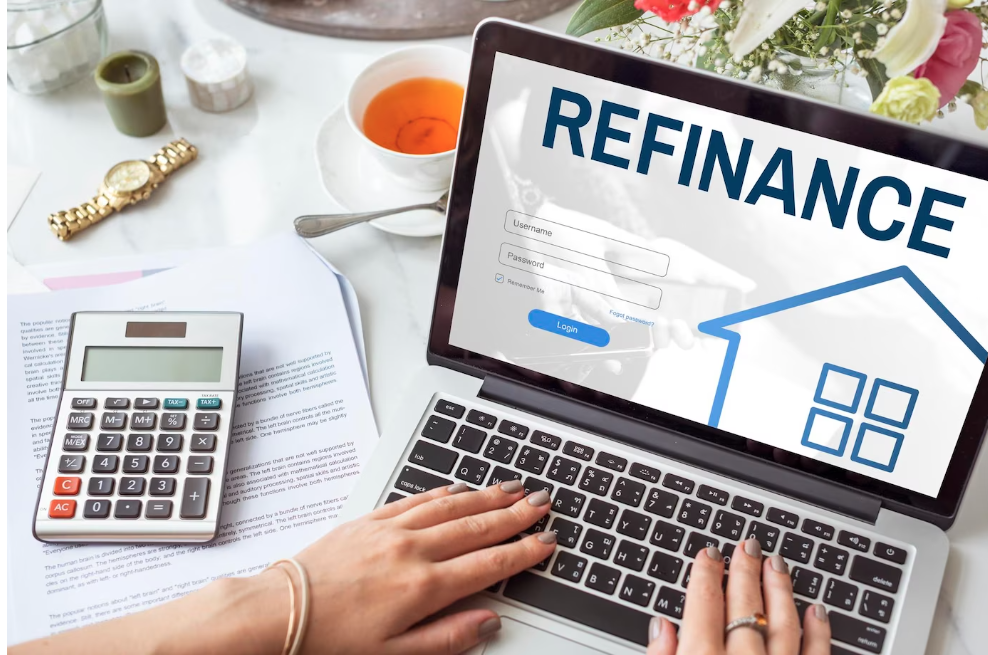Dealing with debt can feel overwhelming and stressful. Many people struggle to keep up with multiple debts and high interest rates, making it hard to regain financial control. Remortgaging is one option some individuals consider to manage and consolidate their debts.
This guide explores remortgaging for debt consolidation, outlines its benefits, and highlights factors to consider when deciding if it’s right for you.
When burdened by debt, managing multiple repayments can be challenging. Consolidating debts through remortgaging is a practical solution to streamline payments and work towards clearing outstanding balances.
Understanding Remortgaging for Debt Consolidation
One key benefit of remortgaging for debt consolidation is the simplified repayment process. Managing multiple debts with varying due dates and interest rates can be confusing and stressful. By combining these debts into a single mortgage payment, borrowers can focus on one monthly obligation, making financial management more straightforward.
Another advantage is the potential for cost savings. If the interest rate on the new mortgage is lower than the rates on the existing debts, borrowers could save money in the long term. Lower interest payments can significantly reduce the overall repayment amount.
Remortgaging for debt consolidation can also improve cash flow by potentially lowering monthly repayments. This creates more financial flexibility, making meeting other essential expenses easier or building a savings buffer. Borrowers can enjoy greater peace of mind by reducing the strain of multiple high-interest payments.
What is Remortgaging for Debt Consolidation?

Dealing with debt can feel overwhelming and stressful. Many people struggle to keep up with multiple debts and high interest rates, making it hard to regain financial control. Remortgaging is one option some individuals consider to manage and consolidate their debts.
This guide explores remortgaging for debt consolidation, outlines its benefits, and highlights factors to consider when deciding if it’s right for you.
When burdened by debt, managing multiple repayments can be challenging. Consolidating debts through remortgaging is a practical solution to streamline payments and work towards clearing outstanding balances.
One key benefit of remortgaging for debt consolidation is the simplified repayment process. Managing multiple debts with varying due dates and interest rates can be confusing and stressful. By combining these debts into a single mortgage payment, borrowers can focus on one monthly obligation, making financial management more straightforward.
Another advantage is the potential for cost savings. If the interest rate on the new mortgage is lower than the rates on the existing debts, borrowers could save money in the long term. Lower interest payments can significantly reduce the overall repayment amount.
Remortgaging for debt consolidation can also improve cash flow by potentially lowering monthly repayments. This creates more financial flexibility, making meeting other essential expenses easier or building a savings buffer. Borrowers can enjoy greater peace of mind by reducing the strain of multiple high-interest payments.
Benefits of Remortgaging for Debt Consolidation

Simplified Repayments:
Managing multiple debts can be challenging and time-consuming. Debt consolidation through remortgaging simplifies this by combining payments into one monthly mortgage repayment.
Potential Cost Savings:
A lower mortgage interest rate could reduce costs if it’s below the average rate of your existing debts. Over time, this could lead to significant savings.
Improved Cash Flow:
Consolidating debts through remortgaging may lower your monthly outgoings. This could provide financial breathing space and reduce the stress of high-interest repayments.
Enhanced Credit Score:
Paying your mortgage on time can improve your credit score, which boosts your overall financial standing.
Considerations Before Debt Consolidation Through Remortgaging
Equity Requirements:
You need sufficient equity in your property to qualify for remortgage. Lenders often set a minimum equity threshold for eligibility.
Costs and Fees:
Remortgaging includes charges like valuation fees, legal costs, and arrangement fees. Ensure these are accounted for when assessing financial feasibility.
Interest Rate Comparisons:
Research interest rates thoroughly, as lower rates can make remortgaging worthwhile. A mortgage broker can assist in identifying competitive deals.
Repayment Term Extensions:
Adding debts to your mortgage might extend repayment terms. Although monthly payments could decrease, you may end up paying more interest overall.
Risk of Repossession:
Missing payments on a remortgage places your property at risk of repossession. Confirm affordability before proceeding.
Steps to Remortgaging for Debt Consolidation

Assess Your Financial Situation
Examine your current debts, interest rates, and monthly repayments. Calculate the total amount needed for consolidation. Determine if remortgaging suits your needs and long-term goals.
Review Your Credit Score
A strong credit score is crucial for obtaining favourable remortgaging terms. Obtain your credit report and resolve any issues or errors before applying.
Seek Professional Advice
Consult a mortgage adviser with expertise in remortgaging for debt consolidation. They can provide tailored guidance and support throughout the process.
Research Lenders and Rates
Compare lenders’ rates, terms, and conditions. Pay attention to interest rates, repayment periods, and any additional fees or charges.
Apply for Remortgaging
Choose a lender and prepare all necessary documents, including proof of income, identification, and a property valuation. Submit an accurate and complete application.
Evaluate the Offer
Review remortgage offers thoroughly. Check interest rates, repayment periods, and fees. Clarify any uncertainties with the lender.
Proceed with the Remortgaging Process
Accept the offer and coordinate with the lender and solicitors. Ensure all paperwork is completed for a smooth transition.
Debt Repayment and Management
Use the released funds to repay your debts. Create a budget and financial plan to manage your new mortgage effectively.
Benefits of Remortgaging for Debt Consolidation
Remortgaging can simplify repayments, reduce costs, and improve cash flow. It may also enhance your credit score by consolidating multiple debts. However, assess the associated fees and long-term implications carefully.
If you’re considering remortgaging at any stage of your mortgage journey, Connect Mortgages can help. With access to numerous lenders, we explore the best options for your situation.
Our initial consultations are designed to help you understand your choices. If you decide to proceed, our team ensures a seamless remortgaging process. We support your journey towards consolidating your debts and achieving a debt-free future.
Thank you for reading our publication “Remortgaging For Debt Consolidation | Your Complete Guide.” Stay “Connect“-ed for more updates soon!







